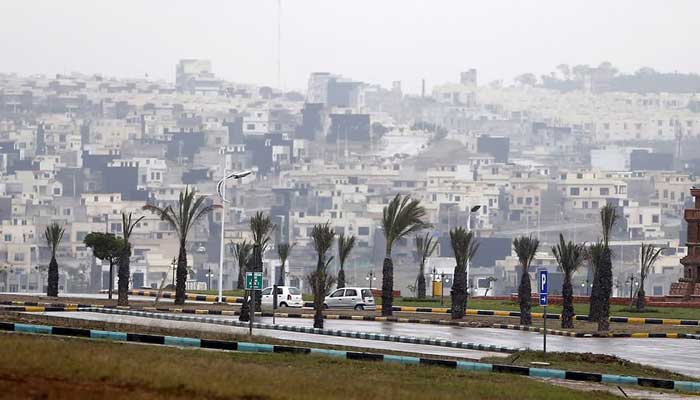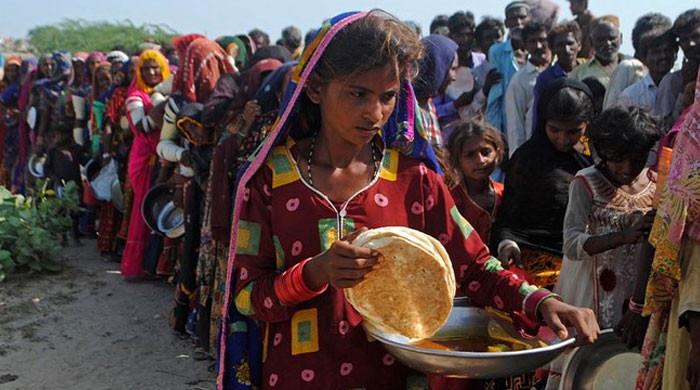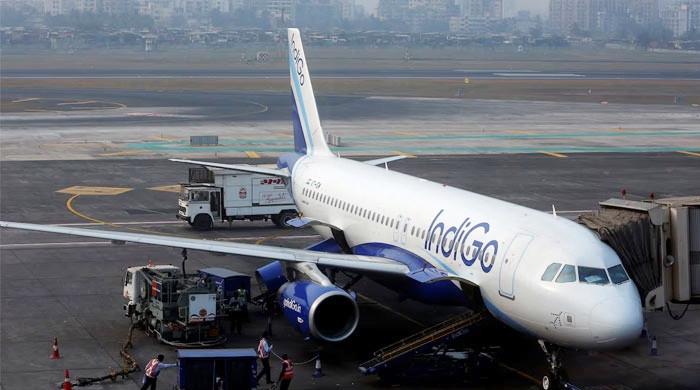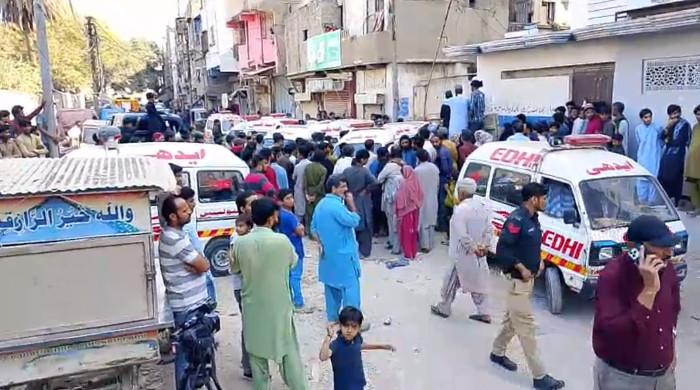Hundreds of billions lost in Islamabad-Rawalpindi private housing scam
As many as 20,000 memberships allotted despite complete absence of land; plots and files sold without approved LoPs
November 28, 2025

- 91,000 plots and files sold beyond approved LoPs, available land.
- Private schemes market, sell land amounting to 80,000 kanals.
- Possession not given of 65,000 plots due to non-availability of land.
ISLAMABAD: One of the largest land scams in the federal capital and its adjoining city Rawalpindi has been unearthed, exposing how private housing schemes and cooperative housing societies allegedly defrauded citizens of hundreds of billions of rupees through overselling of plots, fabricated memberships, and deceptive land marketing in the last many years.
Informed sources said that the NAB Rawalpindi has done a detailed probe into the matter showing staggering scale of irregularities as the housing schemes had sold approximately 91,000 plots and files in excess of the available land or their approved Layout Plans (LoPs) only in Islamabad and Rawalpindi.
In addition, nearly 20,000 memberships were allotted despite a complete absence of land. Perhaps most alarming, it is found that around 80,000 kanals of land were advertised and sold by housing schemes despite not being part of their approved plans.
The data shared with this correspondent by the source, show that private housing schemes alone sold about 26,000 plots/files beyond their approved LoPs or physically available land. They also collectively marketed and sold land amounting to 80,000 kanals that did not exist in their approved records.
A particularly prominent private scheme, whose name has not been disclosed at this stage, starkly illustrates the gravity of the issue. It applied for LoP approval for only 4,000 kanals in 2022, publicly advertised the scheme as spread over 75,000 to 100,000 kanals, marketed itself as an 80,000-kanal mega-housing project, sold 30,000 to 40,000 plots, generating Rs50-60 billion from unsuspecting allottees.
Yet, after three years, managed to purchase only 34,000 kanals — that too all scattered and unplanned. The society obtained no approval or NOC from the regulator.
The probe’s findings indicate that this pattern is not unique. A number of other private schemes followed similar methods — overselling files, advertising fictitious land banks, and collecting billions from the public without sufficient land acquisition or development.
Cooperative housing societies, which were traditionally considered safer and more regulated — were also found equally involved in widespread irregularities.
According to the sources, around 20,000 memberships were allotted without any available land by these societies. Nearly 65,000 plots were sold in projects where possession could not be delivered due to non-availability of land or incomplete development.
These sources also shared the data of four such societies, which are not being identified by the newspaper at this stage. It is revealed that in the case of one of these cooperative societies around 5,000 members still waiting for possession; the second one sold 35,000 plots beyond available/approved land; the third cooperative housing society issued 6,000 to 7,000 excess plots/memberships; whereas the fourth society failed to hand over about 9,000 plots.
Record shared with this correspondent shows that several other societies follow similar patterns, promising development and possession for years but failing to accommodate their members despite repeated assurances.
Officials associated with the exercise say the cumulative damage inflicted on the public runs into hundreds of billions of rupees. Many of the victims include government employees, professionals, retirees, and ordinary citizens who invested their life savings in the hope of acquiring a home in the federal capital region.
DG NAB Pindi Waqar Chouhan when contacted also confirmed these figures.
He said NAB also conducted data-collection in coordination with the Cooperative Department and relevant regulators, ensuring that the findings were evidence-based and fully authenticated. He further said that NAB is also working to prepare a reform package for the housing sector to address these longstanding enormous issues in order to safeguard guard the interest of citizens.
The Bureau's probe highlights severe hardship faced by the affected people — thousands of families who, despite paying substantial sums, remain without land, possession, or development. Many have been waiting for over a decade, continually promised delivery that never materialised.
Observers say the crisis reflects systemic regulatory weaknesses, administrative negligence, and deliberate fraud by housing developers who exploited loopholes and misleading marketing practices.
Originally published in The News











